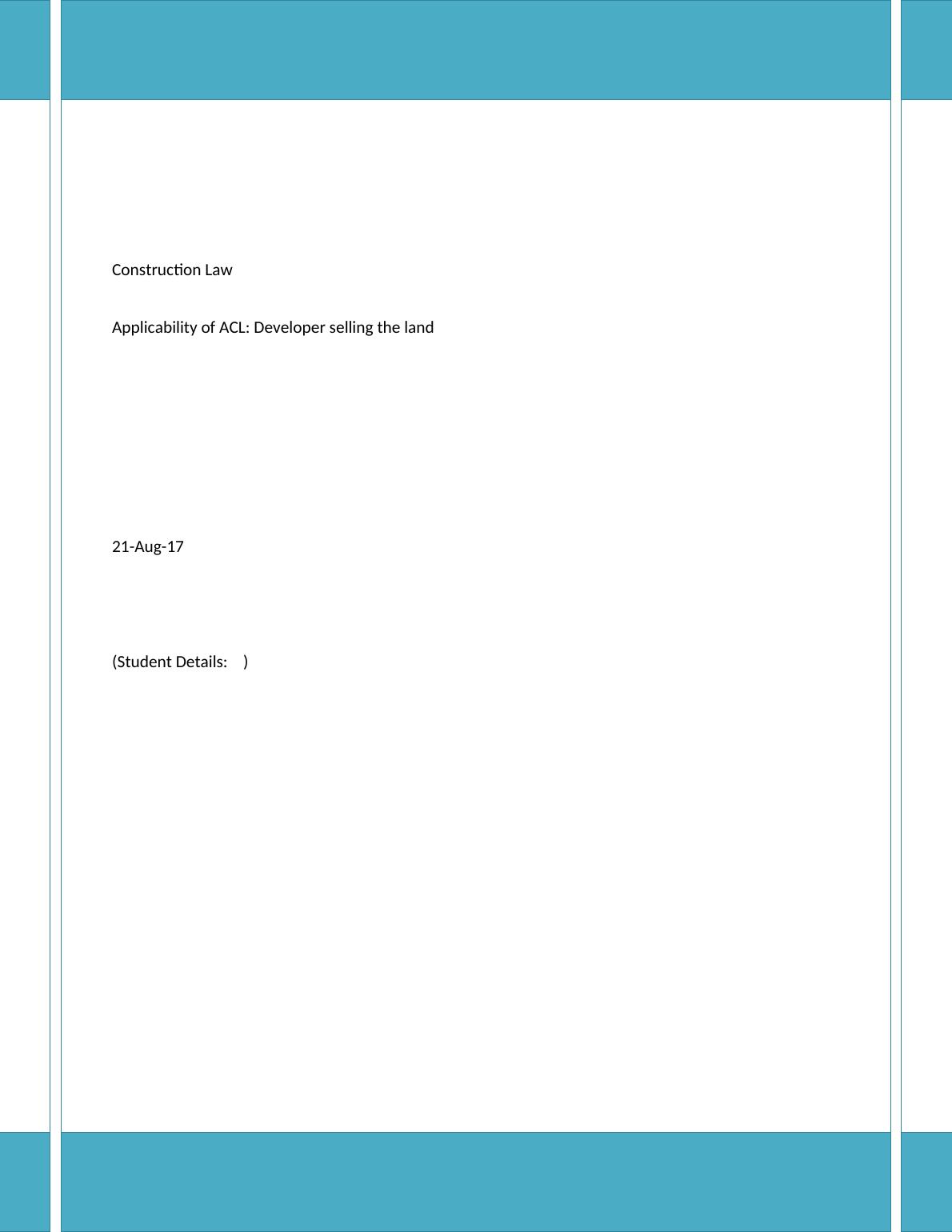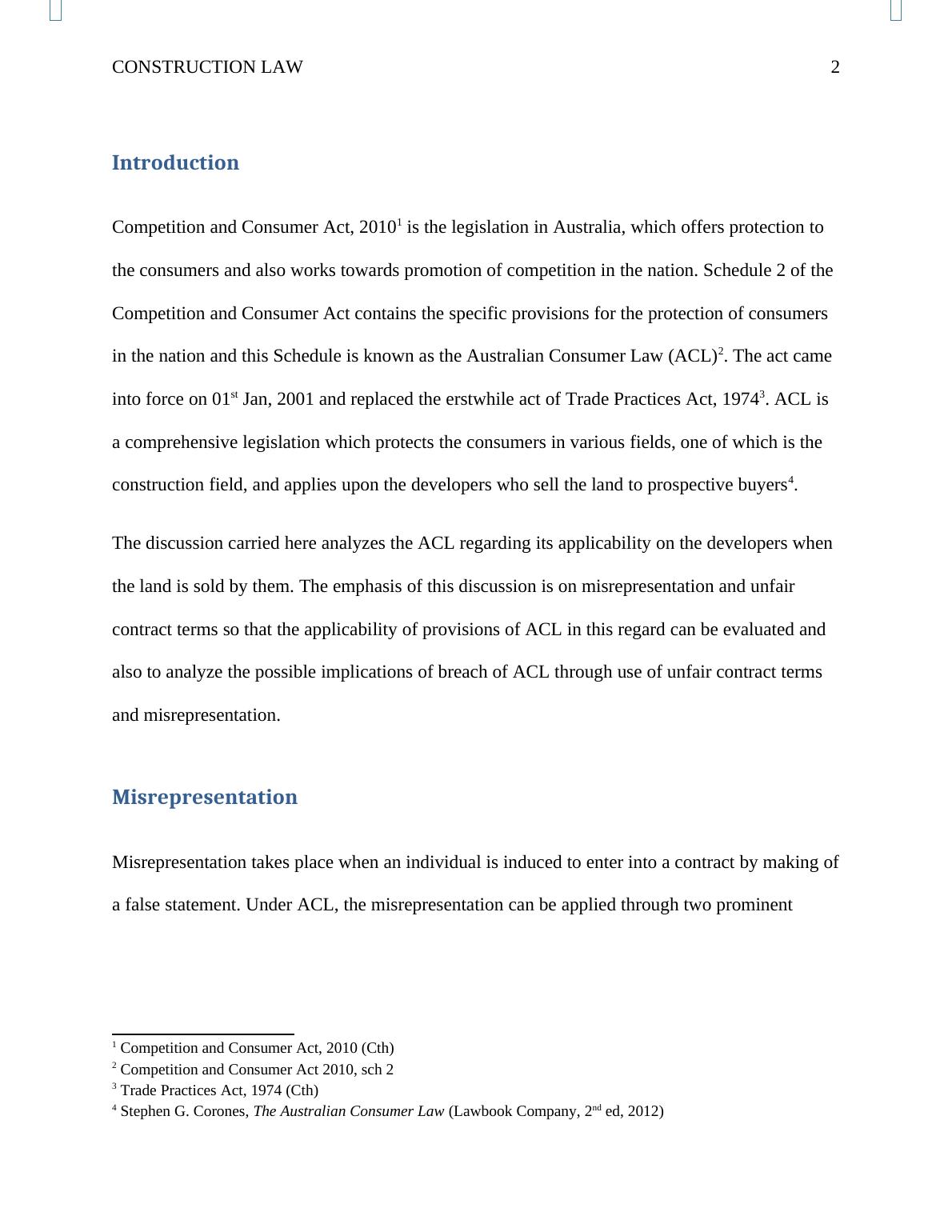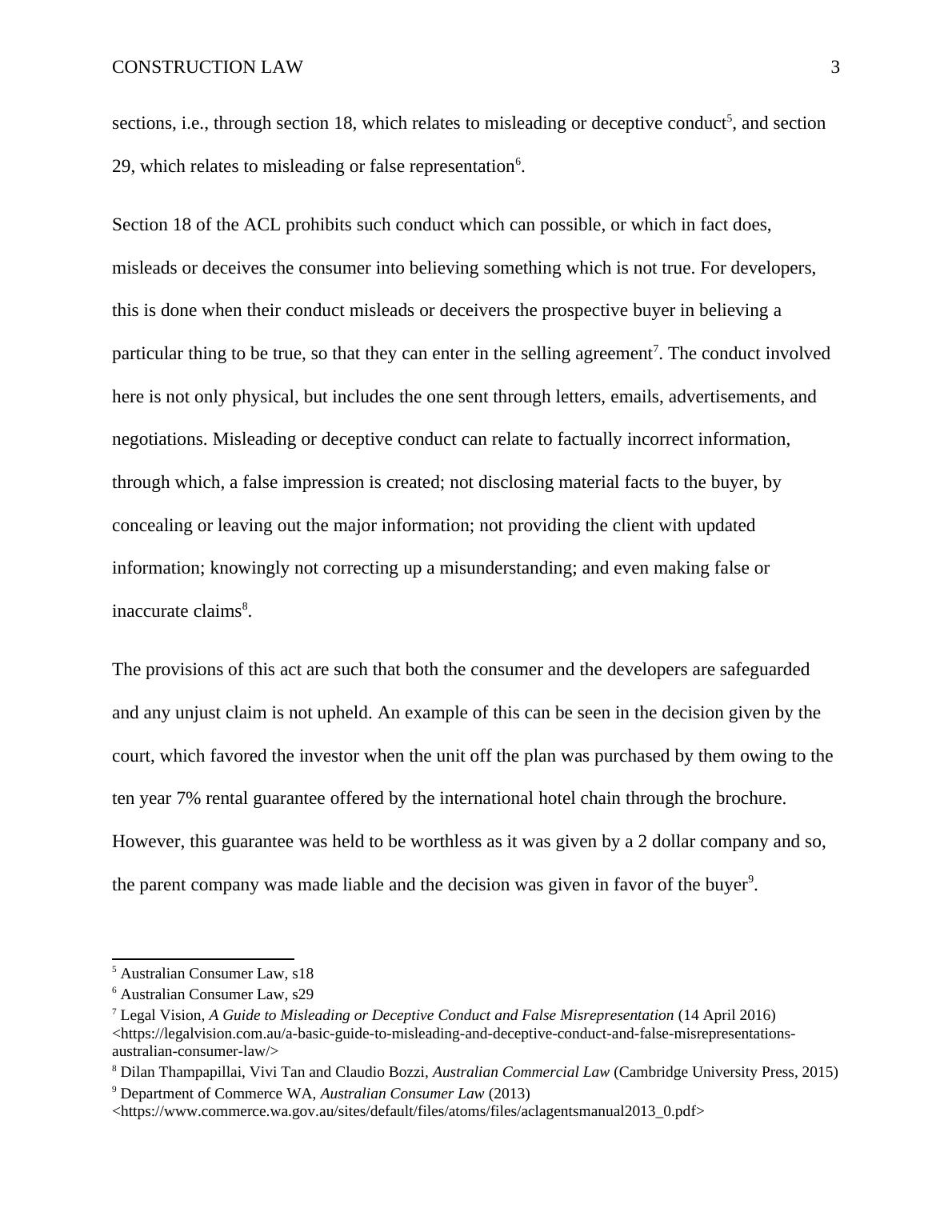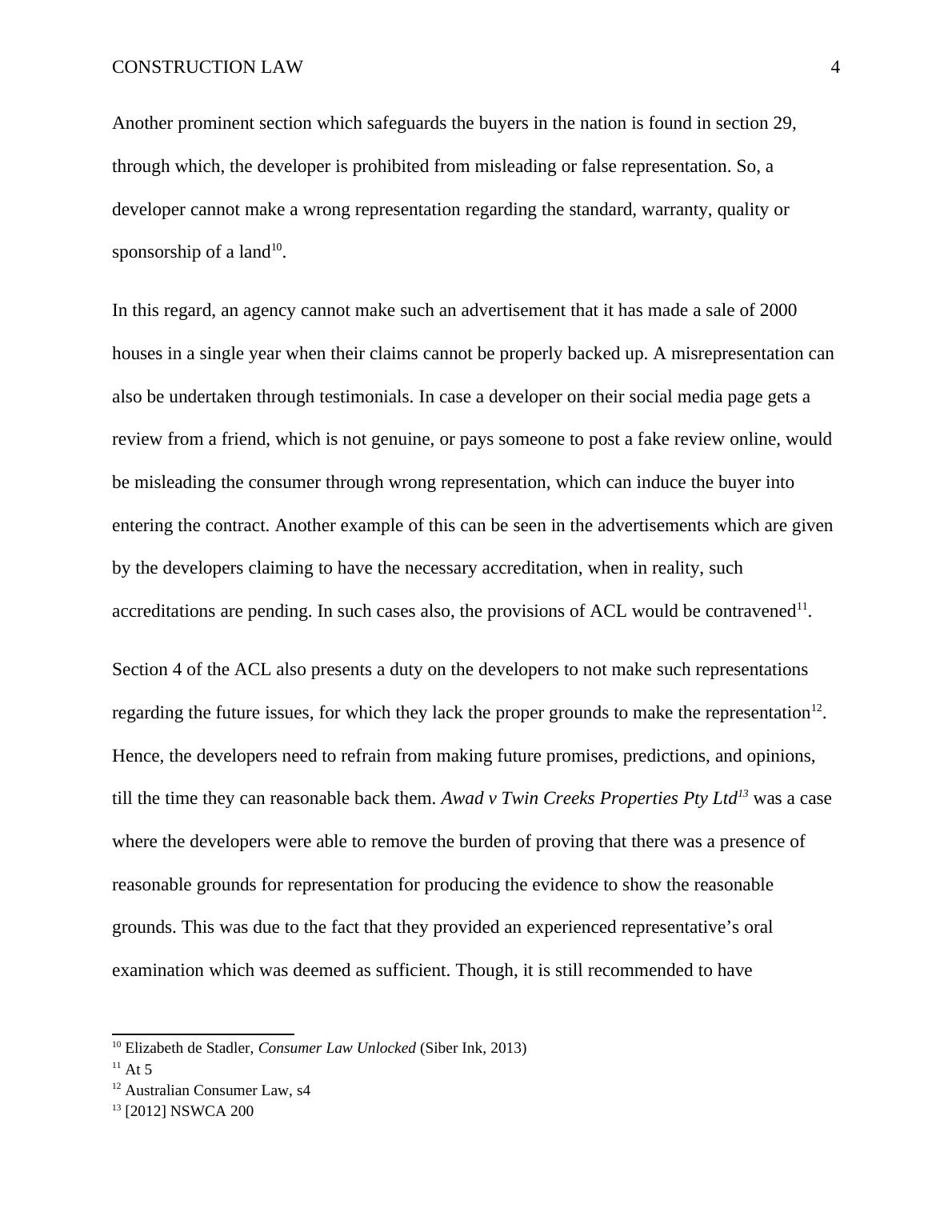Construction Law - ARBE1301 | Assignment
Added on 2020-03-07
11 Pages2396 Words77 Views
Construction LawApplicability of ACL: Developer selling the land(Student Details: )

CONSTRUCTION LAW2Introduction Competition and Consumer Act, 20101 is the legislation in Australia, which offers protection to the consumers and also works towards promotion of competition in the nation. Schedule 2 of the Competition and Consumer Act contains the specific provisions for the protection of consumers in the nation and this Schedule is known as the Australian Consumer Law (ACL)2. The act came into force on 01st Jan, 2001 and replaced the erstwhile act of Trade Practices Act, 19743. ACL is a comprehensive legislation which protects the consumers in various fields, one of which is the construction field, and applies upon the developers who sell the land to prospective buyers4. The discussion carried here analyzes the ACL regarding its applicability on the developers when the land is sold by them. The emphasis of this discussion is on misrepresentation and unfair contract terms so that the applicability of provisions of ACL in this regard can be evaluated and also to analyze the possible implications of breach of ACL through use of unfair contract terms and misrepresentation.Misrepresentation Misrepresentation takes place when an individual is induced to enter into a contract by making ofa false statement. Under ACL, the misrepresentation can be applied through two prominent 1 Competition and Consumer Act, 2010 (Cth)2 Competition and Consumer Act 2010, sch 23 Trade Practices Act, 1974 (Cth)4 Stephen G. Corones, The Australian Consumer Law (Lawbook Company, 2nd ed, 2012)

CONSTRUCTION LAW3sections, i.e., through section 18, which relates to misleading or deceptive conduct5, and section 29, which relates to misleading or false representation6. Section 18 of the ACL prohibits such conduct which can possible, or which in fact does, misleads or deceives the consumer into believing something which is not true. For developers, this is done when their conduct misleads or deceivers the prospective buyer in believing a particular thing to be true, so that they can enter in the selling agreement7. The conduct involved here is not only physical, but includes the one sent through letters, emails, advertisements, and negotiations. Misleading or deceptive conduct can relate to factually incorrect information, through which, a false impression is created; not disclosing material facts to the buyer, by concealing or leaving out the major information; not providing the client with updated information; knowingly not correcting up a misunderstanding; and even making false or inaccurate claims8. The provisions of this act are such that both the consumer and the developers are safeguarded and any unjust claim is not upheld. An example of this can be seen in the decision given by the court, which favored the investor when the unit off the plan was purchased by them owing to the ten year 7% rental guarantee offered by the international hotel chain through the brochure. However, this guarantee was held to be worthless as it was given by a 2 dollar company and so, the parent company was made liable and the decision was given in favor of the buyer9. 5 Australian Consumer Law, s186 Australian Consumer Law, s297 Legal Vision, A Guide to Misleading or Deceptive Conduct and False Misrepresentation (14 April 2016) <https://legalvision.com.au/a-basic-guide-to-misleading-and-deceptive-conduct-and-false-misrepresentations-australian-consumer-law/>8 Dilan Thampapillai, Vivi Tan and Claudio Bozzi, Australian Commercial Law (Cambridge University Press, 2015)9 Department of Commerce WA, Australian Consumer Law (2013) <https://www.commerce.wa.gov.au/sites/default/files/atoms/files/aclagentsmanual2013_0.pdf>

CONSTRUCTION LAW4Another prominent section which safeguards the buyers in the nation is found in section 29, through which, the developer is prohibited from misleading or false representation. So, a developer cannot make a wrong representation regarding the standard, warranty, quality or sponsorship of a land10. In this regard, an agency cannot make such an advertisement that it has made a sale of 2000 houses in a single year when their claims cannot be properly backed up. A misrepresentation can also be undertaken through testimonials. In case a developer on their social media page gets a review from a friend, which is not genuine, or pays someone to post a fake review online, would be misleading the consumer through wrong representation, which can induce the buyer into entering the contract. Another example of this can be seen in the advertisements which are given by the developers claiming to have the necessary accreditation, when in reality, such accreditations are pending. In such cases also, the provisions of ACL would be contravened11. Section 4 of the ACL also presents a duty on the developers to not make such representations regarding the future issues, for which they lack the proper grounds to make the representation12. Hence, the developers need to refrain from making future promises, predictions, and opinions, till the time they can reasonable back them. Awad v Twin Creeks Properties Pty Ltd13 was a case where the developers were able to remove the burden of proving that there was a presence of reasonable grounds for representation for producing the evidence to show the reasonable grounds. This was due to the fact that they provided an experienced representative’s oral examination which was deemed as sufficient. Though, it is still recommended to have 10 Elizabeth de Stadler, Consumer Law Unlocked (Siber Ink,2013)11 At 512 Australian Consumer Law, s413 [2012] NSWCA 200

End of preview
Want to access all the pages? Upload your documents or become a member.
Related Documents
Australian Consumer Law || Australian Legal Systemlg...
|10
|3270
|94
Fundamentals of Law Assignmentlg...
|6
|1268
|46
BUS307 - The Australian Consumer Lawlg...
|11
|2960
|64
Construction Management Building Lawlg...
|14
|3569
|42
200292 - Paper on Impact of Australian Consumer Lawlg...
|13
|2992
|57
200292 - Building Law - Case studylg...
|12
|3252
|124